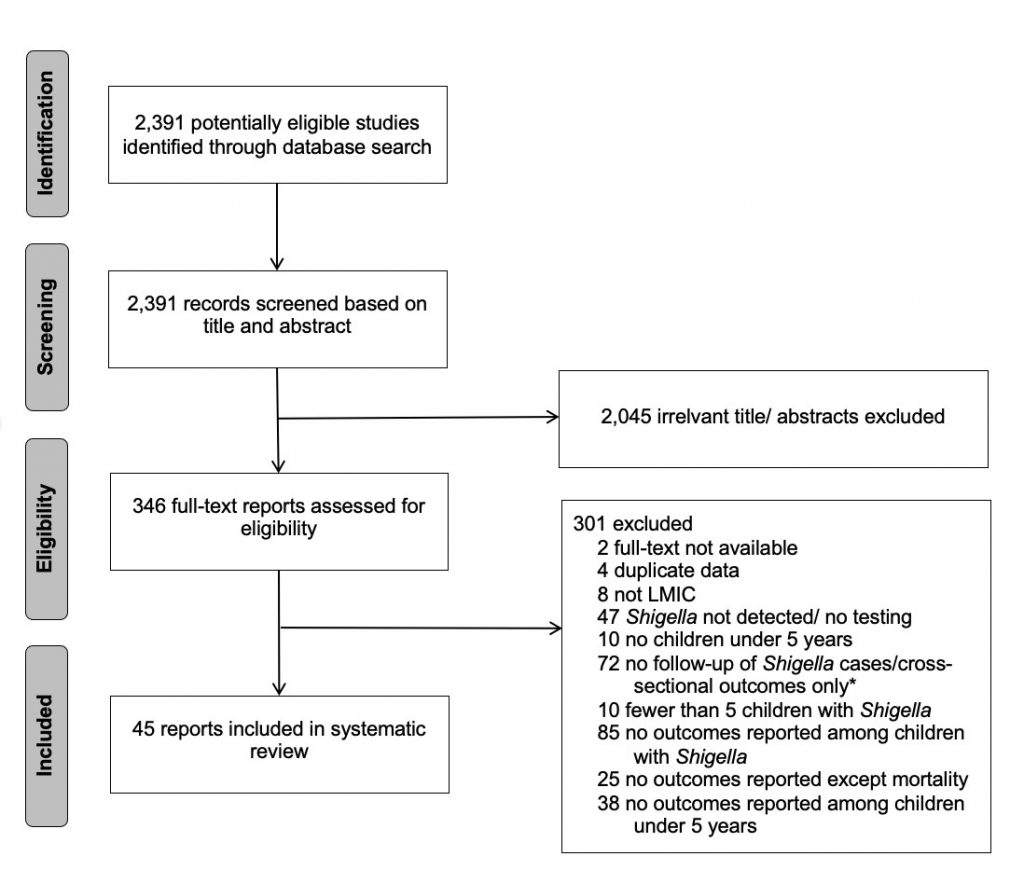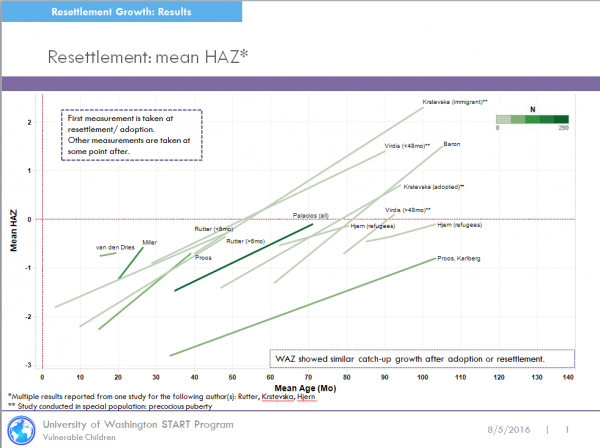
The relationship between acute Shigella infection and long-term sequelae (e.g., stunting, environmental enteric dysfunction) is incompletely understood, but could greatly impact the value of a preventive Shigella vaccine. The START team's goal was to collect data on the breadth of sequelae attributable to Shigella infection among young children living in low- and middle-income countries, including but not limited to: linear growth faltering, ponderal growth faltering, neurodevelopmental delay, economic impacts, immune response, and systemic and enteric inflammation. The START team conducted a systematic review following the Preferred Reporting Items for Systematic Reviews and Meta-Analyses (PRISMA) guidelines to identify literature on the long-term sequelae of Shigella infection in children less than five years of age in low- and middle-income countries. They convened a panel of subject matter experts to ensure priority outcomes and data elements were captured in this review. In addition to documenting the longer-term consequences of Shigella infection, the START team's analysis identified evidence gaps and opportunities for data standardization that can be addressed in future studies. By the end of the project, the team developed a manuscript for publication.







